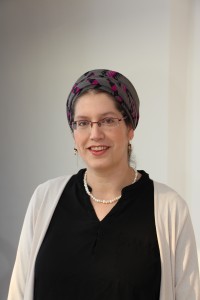Following the suicide of Esty Weinstein
Statement by Gesher Leadership course Fellow Michal Prince
In the past week we have dealt with analyzing every detail in the life of a woman who was anonymous until a week ago. We scrutinized the personal, family, and social causes that caused her to take the most awful step. We go back and forth, at one point accusing the society in which she was raised, her daughters who cut off contact with her and then we immediately turn to the woman herself who did not find the strength to cope and took her own life.
Then we moved to a broader discussion of Haredi society, all aspects of freedom of choice, loss, and community responsibility. No one is free from criticism. Everyone is to blame. Those who did not enable and those who did not see.
Enough already.
Enough with investigating the stories in general terms. Stop speaking about them and us. And it makes no difference which side ‘we’ are on. Here is a tragedy that we all have to learn from, to listen to it, to give it some space. It touches upon matters that we all understand and can identify with—motherhood, family, community, religion, and choice. There is no one who is responsible for what happened and but at the same time we all have the responsibility to stop and think about our part.
The time has come to learn how to listen to the individual. To give him a place. To listen to his story and read between the lines. Living in the society in which she was raised was difficult for this woman, she chose how to live and she chose how to die. We have to listen and ask tough questions but we cannot forget the other who found this place to be a home, protection, and faith. Let us listen to her as well.
When we can listen to everyone’s story, then something will happen, something will touch us and change.
Unfortunately we live in an imaginary world where someone else tells others our story. We have one perception of a Haredi woman, a settler woman, and a secular woman and this story falls into this world of preconceptions and fulfills all the hackneyed media stereotypes.
Our responsibility is to transform the imaginary woman into a real one. To clean and do away with the mask of smoke and alienation and let a person pierce our armor. We do not have the ability to change Haredi society or secular society for that matter (and I for one want to change neither of them) but, we do have the power to turn individuals into people who are seen and heard, and maybe even into friends to whom we can extend a hand before the worst occurs…

Michal is CEO of Yahel Center, specializing in sexuality in religious women. She recently rejoined the IDF reserves as a Mental Health Officer in the Jerusalem IDF induction center.
